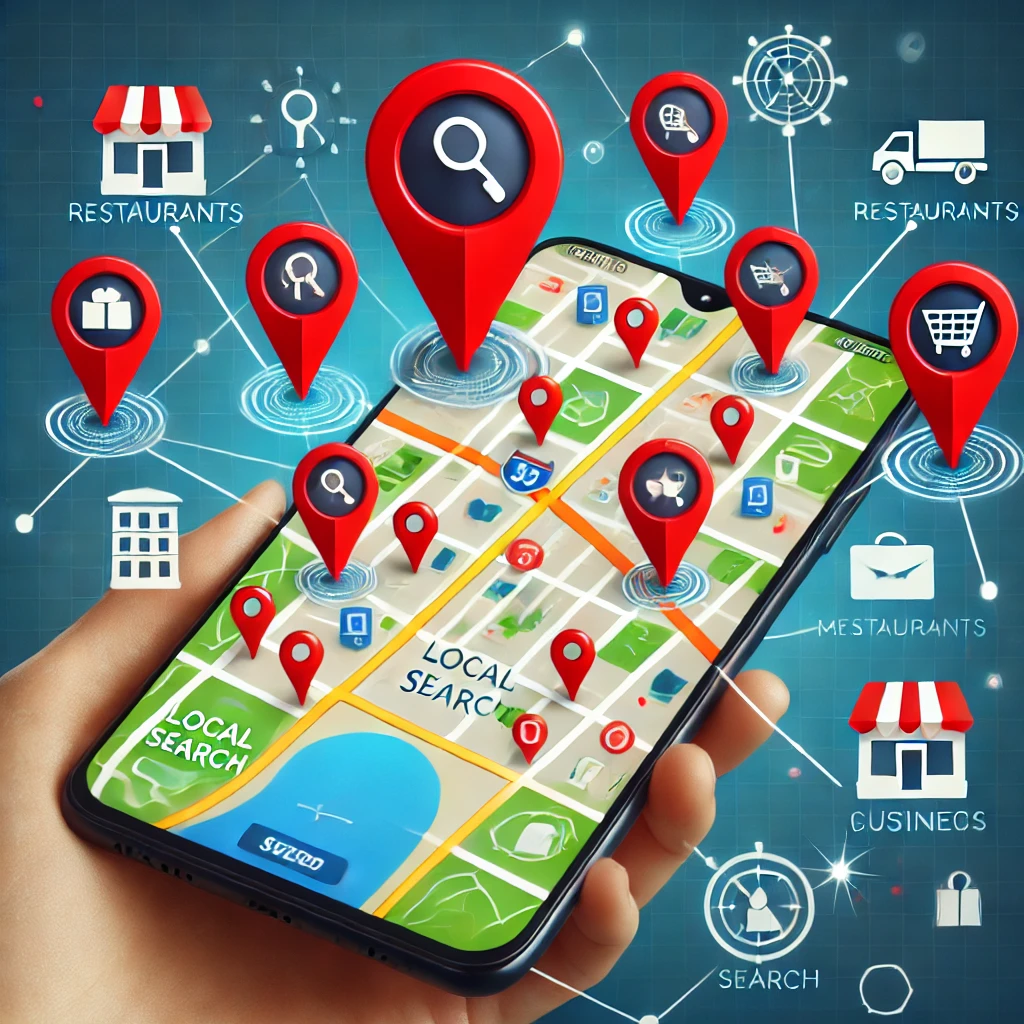
In today’s digital age, every business is vying for online visibility. But how do you make sure you stand out, especially when you’re targeting a local market? The answer lies in local SEO (Search Engine Optimization). Whether you’re a small business owner or a multi-location franchise, mastering local SEO is crucial to attract more customers from your area. In this guide, we’ll walk you through how to leverage local SEO to attract more customers and gain a competitive edge in your local market.
What is Local SEO? How Does It Work?
Local SEO refers to the process of optimizing your online presence to attract more business from relevant local searches. These searches happen on platforms like Google, Bing, Yelp, and others. It’s all about ensuring your business shows up in search results when potential customers search for services or products in your vicinity. If you’re not leveraging local SEO, you’re missing out on a huge pool of local customers who could be walking through your door.
Local SEO Explained
Importance of Local SEO for Businesses
Every business, whether small or large, that serves customers face-to-face (like restaurants, gyms, or legal offices) needs local SEO. According to recent data, 46% of all Google searches are local, and 88% of consumers who do a local search on their smartphone visit or call a store within a day. That’s why your business needs to be in the top search results when someone looks for services in your area. By focusing on local SEO, businesses can not only increase their visibility but also their customer base.
Understanding Search Engine Algorithms
How Search Engines Rank Local Businesses
Google and other search engines use specific algorithms to decide which businesses show up for local searches. Proximity to the searcher, relevance of the business to the query, and the authority of the business are all critical factors. Optimizing for these factors will ensure that when a potential customer searches for your services, your business appears at the top of the results.
How to Leverage Local SEO to Attract More Customers
To successfully leverage local SEO, businesses must optimize several factors that influence search rankings. Let’s explore some of these in detail.
Google My Business Optimization
One of the most important steps in local SEO is optimizing your Google My Business (GMB) profile. This free tool lets businesses manage how their information appears in Google Search and Google Maps. Accurate and updated information, including your business name, address, phone number, business hours, and categories, ensures potential customers can easily find and contact you. Here’s how to optimize your GMB profile for success:
- Complete Every Section: Ensure all fields in your GMB profile are filled in accurately.
- Use Local Keywords: Incorporate local keywords in your business description to increase relevancy.
- Add Photos: A business with more photos generally gets more clicks, so regularly upload high-quality images.
- Encourage Reviews: Customer reviews can significantly improve your local SEO and trustworthiness.
NAP Consistency
Why Consistent Name, Address, and Phone Number Matter for Local SEO
NAP consistency (Name, Address, and Phone Number) is crucial in local SEO. Search engines prioritize businesses that have consistent contact information across all online platforms, including social media profiles, websites, and directories. Inconsistent information can confuse both customers and search engines, reducing your visibility.
Local Keyword Research
Choosing the Right Keywords to Attract Local Customers
Conducting local keyword research is essential to ensuring your content matches what customers are searching for. Focus on keywords that include your location or neighborhood. For example, instead of optimizing just for “plumber services,” try “plumber services in Chicago.” Tools like Google Keyword Planner and Moz’s Keyword Explorer can help identify the most relevant local keywords for your business.
Local Link Building
How to Build Local Links that Boost Your SEO Rankings
Just like in traditional SEO, backlinks are critical in local SEO. However, the focus should be on local backlinks—links from businesses, organizations, or publications in your geographic area. Examples include sponsorships of local events, partnerships with local businesses, or contributions to local blogs. The more local sites that link to you, the higher your business will rank in local searches.
Customer Reviews and Reputation Management
How Customer Reviews Impact Your Local SEO
Customer reviews play a dual role in local SEO: they increase your business’s visibility and help build trust with potential customers. Businesses with higher ratings and more reviews tend to rank higher in local searches. However, it’s not just about quantity; managing your reviews and responding to them in a professional manner is equally important. Engaging with customers and resolving any negative feedback shows that you value their experience.
You can also read; How to Conduct a Comprehensive SEO Audit for Your Website
On-Page SEO for Local Search
On-page SEO is fundamental for optimizing your website for local searches. Here’s how you can do it:
- Optimize Title Tags and Meta Descriptions: Use local keywords in your title tags and meta descriptions to signal relevance to search engines.
- Use Local Keywords in Headings: Make sure your main heading (H1) and subheadings include the location-specific keywords.
- Create Location Pages: If you serve multiple areas, create separate location pages to boost your relevance in those areas.
- Add a Local Map: Embedding a Google Map of your business location increases trust and makes it easier for customers to find you.